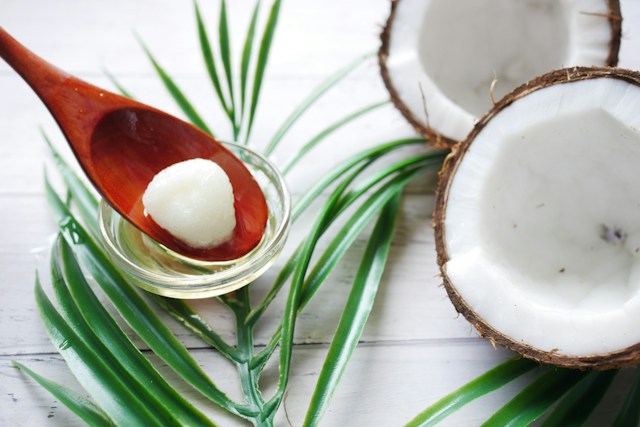
Yes! The controversy continues. Science without controversy isn’t science—especially when it comes to fats.
A few years ago, coconut oil was in the spotlight, accused with strong words: “Coconut oil is pure poison,” said Dr. Karin Michels, a professor of Public Health at Harvard, during a lecture titled “Coconut Oil and Other Nutritional Mistakes.”
What else did she say?
- “It’s full of saturated fats that can clog coronary arteries.”
- “There’s no study showing any health benefits.”
Strong accusations coming from a “Harvard-level” expert, directed at a food that has been increasingly recognized for its benefits.
How could we not be shocked?
To untangle this issue, we must first ask: Are saturated fats really the cause of cardiovascular disease?
The answer: No!
Although this may contradict what you’ve heard all your life, growing evidence shows no direct relationship between saturated fat intake and cardiovascular risk. On the contrary, many meta-analyses suggest that saturated fats per se are not harmful to cardiovascular health (FESNAD, 2015).
The real culprits are not dietary cholesterol or saturated fats, but rather the excess consumption of sugars, ultra-processed oils, and inflammatory foods, combined with an unhealthy lifestyle.
In nutrition, we can’t label foods as simply “good” or “bad” without considering multiple factors. In the case of fats, we must not only look at the degree of saturation (saturated, monounsaturated, polyunsaturated) but also:
- The chain length of fatty acids
- The source of the fat
- The extraction method
- The intended use
- And even your individual sensitivities
The truth about coconut oil
Coconut oil is indeed rich in saturated fats (80–90%), but here’s the great news: most of those are medium-chain triglycerides (MCTs), predominantly lauric acid (47%) (Harvard School of Public Health, n.d.).
This makes it a superfood.
Medium-chain fatty acids (MCFAs) contain 6–12 carbon atoms and are digested, absorbed, and metabolized differently from long-chain fatty acids. They are absorbed quickly in the intestine, bypass cholesterol transport, and provide a rapid source of energy (Babu, A. S., et al., 2014).
This unique metabolism makes coconut oil useful in improving insulin resistance and neurodegenerative conditions, as it serves as a quick energy substrate for brain and muscle cells.
Moreover, research suggests that MCFAs inhibit the growth of many microbial pathogens. Lauric acid, through its metabolite monolaurin, can disrupt the cell walls of viruses, bacteria, protozoa, and fungi—leading to their destruction (Beena Shino et al., 2016).
As if that weren’t enough, studies also show coconut oil may support treatment of breast and endometrial cancer, as it induces cancer cell death and prevents proliferation. In fact, consuming virgin coconut oil during chemotherapy can improve quality of life in breast cancer patients (Lappano, R. et al., 2017).
In the context of a healthy lifestyle
Virgin coconut oil (when it doesn’t cause food sensitivity) has positive health effects and does not pose a cardiovascular risk. On the contrary, it:
- Increases HDL (“good” cholesterol)
- Reduces oxidation of molecules that cause arterial blockage
Also, not all saturated fats are the same: a naturally saturated fat like coconut oil is very different from fats that become saturated through heating (like those in fried foods).
Coconut oil is ideal for cooking, precisely because being saturated makes it stable at high temperatures and gives it a high smoke point.
Why use coconut oil?
Because it:
- Is antioxidant and anti-inflammatory
- Is antimicrobial and antifungal, supporting your immune system
- Provides immediate energy, great before workouts or for mental focus
- Helps improve gut microbiota
- Enhances insulin sensitivity
- Can be used as mouthwash, deodorant, or anti-wrinkle cream, avoiding toxic personal care products
That’s why we recommend including virgin coconut oil in your lifestyle—as long as it doesn’t cause you food sensitivity.
How to know if it does?
Consult with our team of NutriWhite Ambassadors.
MSc. Carol Rodríguez
Nutritionist-Dietitian
NutriWhite Ambassador
References:
Beena Shino, Faizal C. Peedikayil, Shyamala R. Jaiprakash, Gufran Ahmed Bijapur, Soni Kottayi, and Deepak Jose. (2016) Comparison of Antimicrobial Activity of Chlorhexidine, Coconut Oil, Probiotics, and Ketoconazole on Candida albicans Isolated in Children with Early Childhood Caries: An In Vitro Study
Hindawi Publishing Corporation Scientifica Volume 2016, Article ID 7061587, 5 pages http://dx.doi.org/10.1155/2016/7061587
Federación Española de Sociedades de Nutrición, Alimentación y Dietética (2015). Consenso sobre las grasas y aceites en la alimentación de la población española adulta; postura de la Federación Española de Sociedades de Alimentación, Nutrición y Dietética (FESNAD). Nutr Hosp. 2015;32(2):435-477 http://www.nutricionhospitalaria.com/pdf/9202.pdf
Harvard T.H. Chan School of Public Health. Coconut Oil. https://www.hsph.harvard.edu/nutritionsource/food-features/coconut-oil/
Lappano, R., Sebastiani, A., Cirillo, F., Rigiracciolo, D. C., Galli, G. R., Curcio, R., … Maggiolini, M. (2017). The lauric acid-activated signaling prompts apoptosis in cancer cells. Cell Death Discovery, 3, 17063–. http://doi.org/10.1038/cddiscovery.2017.63
NutriWhite Editorial Team











